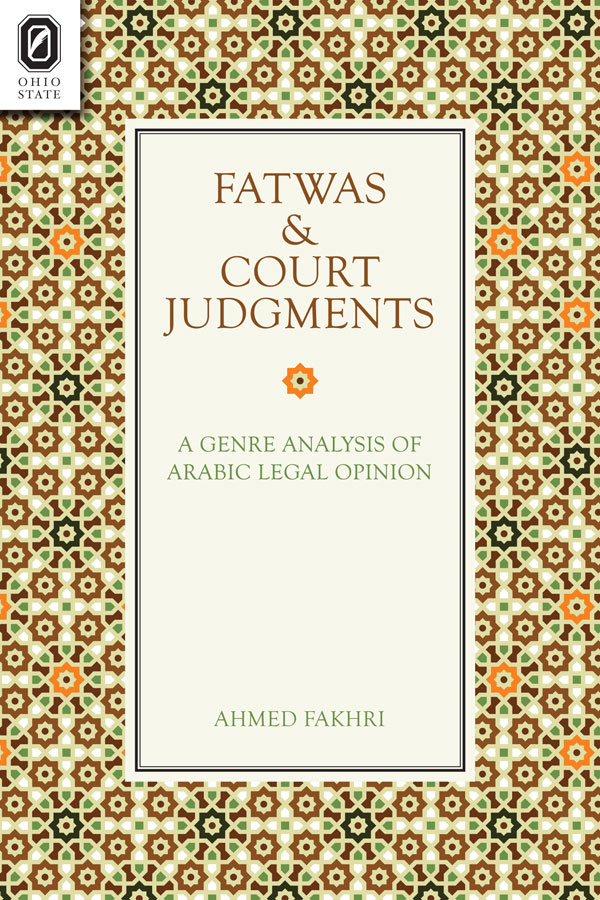Fatwas and Court JudgmentsA Genre Analysis of Arabic Legal OpinionAhmed Fakhri |
 2/11/2014 Language Arts & Disciplines/ 157 pp. 6x9 
$29.95 paper 978-0-8142-5305-2 Add paper to shopping cart Shopping Cart Instructions Review/Change Shopping Cart & Check-out | |||
|
Explore More |
“A thorough, detailed look at two important discursive practices in the Muslim world. Fakhri takes genre analysis into the realm of legal discourse in a study that combines text analysis and the cultural analysis necessary for Western readers to understand exactly how fatwas and court judgments work.” —Barbara Johnstone, professor of English and linguistics at Carnegie Mellon University “The main argument of Fatwas and Court Judgments: A Genre Analysis of Arabic Legal Opinion is that Arabic legal genres are strongly bound to their social, economic, and political context, and that therefore their linguistic and discourse features can be explained by this relationship. This is an outstanding study in the framework of Arabic scholarship, which I found inspiring and convincing.” —Manuel Fería García, Universidad de Granada Fatwas and Court Judgments: A Genre Analysis of Arabic Legal Opinion uses a genre analysis approach to investigate how Arabic legal opinion is linguistically and rhetorically constructed in two culturally significant types of texts: secular court judgments and fatwas, the Islamic edicts based on sharii’a law. Ahmed Fakhri’s analysis shows that the court judgments exhibit several Western-inspired features, particularly the complexity of syntax and the rhetorical moves utilized to construct arguments. But the fatwas maintain conventional Arabic patterns of persuasion, such as citing religious texts, relying on affective appeal, and offering moral advice. Showing how these two radically different rhetorical traditions coexist, Fatwas and Court Judgments totally re-conceptualizes Arabic legal argumentation by highlighting its diverse sources and hybridity. The differences between the two genres stem from elements of their socio-cultural context, such as the role relations of the participants and the characteristics of the institutions to which the genres belong. Moving beyond these contexts, Fatwas and Court Judgments reveals generic practices that have broad implications for understanding various aspects of wider Arab culture, including the tension between modern secular ideologies and traditional religious beliefs, the male-dominated access to discourse, and the prevalence of utilitarian attitudes exhibited in “fatwa shopping.” Ahmed Fakhri is associate professor of linguistics at West Virginia University. | |||

